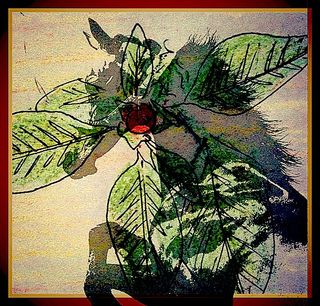
Anxiety
Ashwagandha for Anxiety
Ancient herbal remedy for modern life stress.
Posted January 8, 2014 Reviewed by Lybi Ma

Ashwagandha (Latin name: Withania somnifera) is an herbal medicine with a rich tradition. Its use dates back three millennia to the time the Ayurvedic practitioners in India began using it for people with anxiety, low energy, and the ravages of aging.
The word “ashwagandha” translates to “smell of horse” and has a dual meaning: First, the herb itself does have that particular aromatic quality, and second, because traditional belief is that consumption can help its user gain horse-like strength and vitality. Luckily, if you take this herb, you will not smell like a horse, but many of my patients do find increased energy and vigor.
How Does Ashwagandha Work?
Ashwagandha has been studied for its benefits to lower inflammation, help Parkinson’s Disease and other neurological disorders, and has been used as an adjunct in cancer care to support low white blood cell count (Mishra et al., 2004). While this plant medicine contains many plant compounds that help balance the body’s physiology, ashwagandha's most well-researched phytochemicals are its alkaloids and lactones (known as withanolides), which are thought to act as hormonal precursors (no authors, 2004). In holistic medical care, ashwagandha is seen as adaptogenic, meaning it will help increase effect when activity is low but will block excess stimulation when activity is too high (Bhattacharya et al, 2000). This is a very good choice for the wild hormonal variations that occur with anxiety.
Ashwagandha for Anxiety?
Clinically, ashwagandha is found to be very helpful to calm anxiety, and specifically, help agoraphobia (anxiety especially in open or crowded places). Most of the understanding we have about ashwagandha is based on its substantial anecdotal history and animal studies. But more clinical studies are being done.
One 2012 study, of 64 randomized volunteers, asked subjects to take either ashwagandha or a placebo twice a day for 60 days. The ashwagandha group’s capsule contained 300 mg of a concentrated extract made from the root. During the treatment period, regular telephone call check-ins assured volunteers were consistently taking the herbs or placebo and were used to note any adverse reactions. The treatment group given the ashwagandha root extract exhibited a significant reduction in anxiety scores after two months relative to the placebo group, without side effects. Most notably, serum cortisol levels were substantially reduced in the herbal group (Chandrasekhar et al., 2012). Cortisol is the stress hormone that goes up when we are stressed out. Cortisol also creates longer-term fatigue and mental fogginess, and brain structures for emotion and memory are damaged when cortisol is too high.
Other case studies using ashwagandha also show benefit in stressed women with adrenal hyperplasia (enlarged adrenal glands) showing beneficial changes in cortisol, progesterone, and pregnenolone (a valuable precursor hormone), as well as a noticeable improvement in a difficult to treat hair loss known as alopecia (Kalani, 2012). Other studies of men with stress-related fertility issues found higher antioxidant status and much healthier sperm when supplemented with ashwagandha (Mahdi, 2009).
Ashwagandha Dosage and Best Usage
Typical dosage is 300mg of ashwagandha standardized to withanolide content of at least 1 to 5% withanolides once or twice a day. Ashwagandha's best use may be for someone with anxiety and stress that is accompanied by nervous depletion and sleeplessness. It is also great for stressed-out infertile men with poor sperm, women with stressed-induced hormonal imbalance, and may help with hair loss too.
Ashwagandha Toxicity
No toxicity has been noted with this botanical medicine. There was one case report documenting a woman with a number of health challenges, including low thyroid, depression, fibromyalgia, high blood pressure, and morbid obesity. After starting ashwagandha, she experienced hirsutism (increased hair growth) and she had increased levels of the hormone DHEA sulfate along with lowered testosterone. While it is not clear if the herb was the problem, it resolved once stopping the herb (Nguyen et al. 2013) and no other studies to date have mentioned any effect like this.
References
Bhattacharya et al. Anxiolytic-antidepressant activity of Withania somnifera glycowithanolides: an experimental study. Phytomedicine. 2000; 7:463–469
Chandrasekhar et al. A prospective, randomized double-blind, placebo-controlled study of safety and efficacy of a high-concentration full-spectrum extract of ashwagandha root in reducing stress and anxiety in adults.Indian J Psychol Med. 2012;34(3):255-62.
Kalani et al. Ashwagandha root in the treatment of non-classical adrenal hyperplasia. BMJ Case Rep. 2012 Sep 17
Mishra et al. Scientific basis for the therapeutic use of Withania somnifera (ashwagandha): a review. Altern Med Rev. 2000; 5: 334–346.
No Authors. Monograph. Withania somnifera. Altern Med Rev 2004; 9: 211–214.
Nguyen et al. Effect of ashwagandha on adrenal hormones. Presented at The Endocrine Society, ENDO 2013, San Francisco, as an abstract. Sunday, June 16, 2013.

